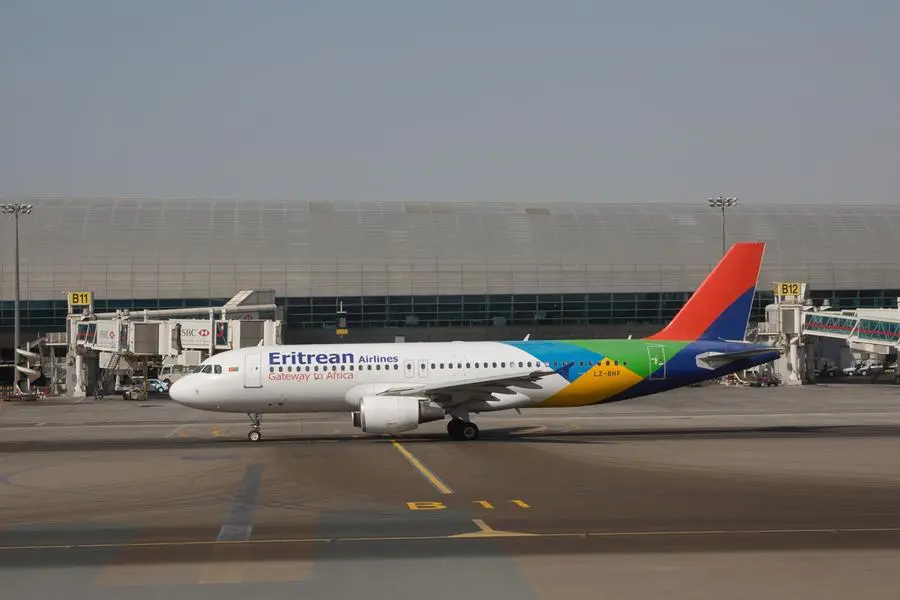PHOTO
Eritrea and Pakistan hold the distinction of being the world’s outstanding defaulters of airline revenues, as the global airline industry grapples with minimal progress in reduction of blocked airline funds.
At $311 million, Pakistan stands out for holding the largest bill of blocked funds. But Eritrea, with an outstanding bill of $75 million, holds the record for the most aged debt – of eight years or 96 months.
The International Air Transport Association, IATA, reported this week that at the end of October 2024, governments had blocked the repatriation of $1.7 billion in airline funds. The figure represented a marginal improvement from the $1.8 billion at the end of April.
The bulk of the blocked funds -- about $1 billion or 59 percent of the global tally -- were attributable to African countries. That was despite significant reductions in the six months to October, during which Algeria slashed its bill from $286 million in April to $193 million, and Ethiopia from $149 million to $43 million.
But this was offset by increases of $84 million in the XAF zone (members of the Economic and Monetary Union of Central Africa -- Cameroon, Central African Republic, Chad, Republic of the Congo, Equatorial Guinea, and Gabon), Mozambique $84 million, and $73 million in the XOF zone comprising the West African Economic and Monetary Union states of Benin, Burkina Faso, Cote d’Ivoire, Guinea-Bissau, Mali, Niger, Senegal, and Togo.
“Over the last six months, we have seen significant reductions in blocked funds in Pakistan, Bangladesh, Algeria and Ethiopia. At the same time, amounts are rising in the XAF /XOF zones and Mozambique. Bolivia has also emerged as a problem, where repatriating sales revenues is becoming increasingly difficult and unsustainable for airlines,” IATA’s Director General Willie Walsh, said on December 9.
Mr Walsh urged governments to remove “all barriers for airlines to repatriate their revenues from ticket sales and other activities in accordance with international agreements and treaty obligations”, emphasising that airlines would be left with no choice but to withdraw services if the situation is not addressed.
“No country wants to lose aviation connectivity, which drives economic prosperity. But, if airlines cannot repatriate their revenues, they cannot be expected to provide a service. Economies will suffer if connectivity collapses. So, it is in everyone’s interest, including governments, to ensure that airlines can repatriate their funds smoothly,” he said.
According to IATA’s tally, just nine countries account for 83 percent, or $1.43 billion, of the $1.7 billion in blocked funds.
IATA says the main issue is not necessarily the lack of hard currency, but processing delays caused by the system of audit and tax exemption certificates.
Although Bangladesh has foreign exchange challenges, its central bank has prioritised airlines’ access to foreign exchange, which has led to a reduction in blocked funds from $320 million in April to $196 million at the end of October.
Mr Walsh says, “the central bank needs to continue to prioritise airlines’ access to foreign exchange in line with international treated obligations.”A new entrant to the list of blocked funds, Bolivia, has racked up about $42 million of blocked funds as it grapples with a contraction in forex, particularly the US dollar.
In terms of the age of the debt, Eritrea, with the longest period at 96 months, is followed by Lebanon and the XAF Zone at 60 months, Pakistan at 48 months, Bangladesh 47 months, Angola 36 months, Algeria 24 months and the XOF zone at 12 months.
Egypt, Nigeria and Zimbabwe, which once topped the blocked funds roll, are off the list after instituting measures that eased funds repatriation.
Nigeria, which owed airlines $850 million at the end of June 2023, had by April 2024 settled 98 percent of the claims against it and was left with just $19 million that was pending reconciliation.
© Copyright 2022 Nation Media Group. All Rights Reserved. Provided by SyndiGate Media Inc. (Syndigate.info).





















